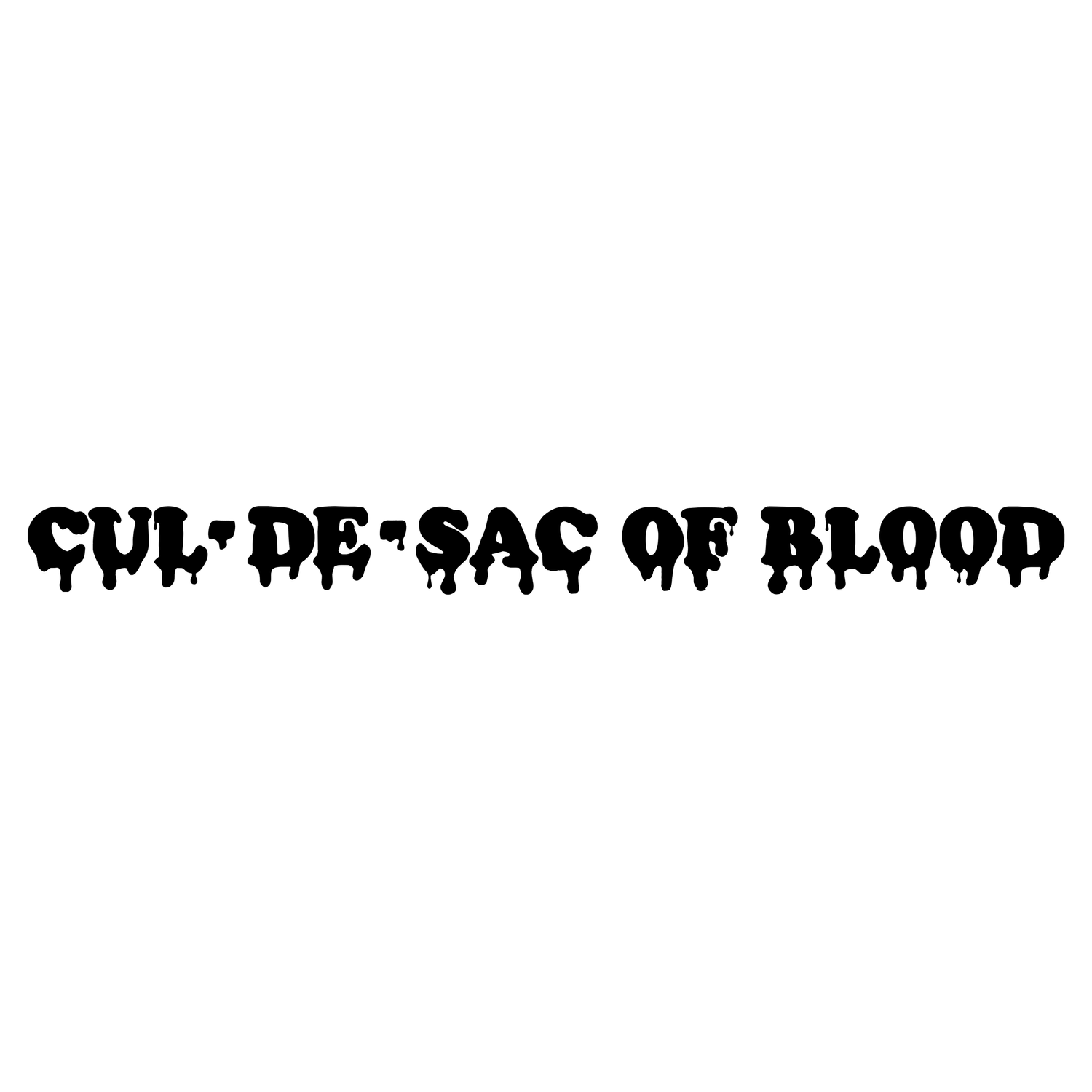Jeremy Hoevenaar
Red Weakens an Hour
The axe comes down again, two-sided this time: labrys, battle-axe, artifact engraved with
grooves and patterns filigreed with old blood that traps and dims the sun. It chunks in below his
left ribcage and he can feel it connect with his spine, a thickening buzz running down to tailbone
and up into skull, eyes. His vision quakes, jellifies, the sun suddenly a yolk spitting wet ropes of
shadow. He is prone in wet grass, concrete a moment ago, he thinks. Is it significant? These
scenic shifts? The axe arcs back up sluicing a red sheet, a pink mist, the sun a pulsing symptom,
producing tangents: you can think of the sun as hemmed-in, caged by expectation while it
spreads shapes out, making arrangements with its heat. Trust it in reflections, warped or
concentrated, sometimes diffused, making color, synergistic with wind and bending things, not
least itself. Everything bends everything else: the gravity of facts, facts being events, duration
painless and spreading. The difference is spreading. The blade slants and flickers. Things lean
into each other, themselves. Sunlight runs from the wound, pooling, like the body is filled with
another day. What day would you choose? The blade flickers again and flattens, falls as a war
hammer and smashes into his left hip, shattering. He imagines the screen of his iPhone cracking
in concert, splitting icons, then slivers of glass sticking into his scrolling thumb. Digital, digit,
dissipate. The hammer pendulums and the day is damp and full, a soft hill with its distances
rolling away, singing itself into the split at the end of vision. The phone says 7:07. If he gets up
now he can be a little leisurely, sip coffee, let the dread build or seep away as it will, watch the
backyard weeds twitch greenly in the wind, peaceful as long as he gets the cats fed fast. He rolls
onto his back. Behind the hammer looms a grin with no face to hold it, toothily ensconced in
folded clouds, but right over him, seeming close. It flexes in the light like a thought. No hands
are holding the weapon; it just is, and moves. He feels himself dragged, the world scrolling, body
a bag of loose parts leaking its essentials. His jaw clenches tight, teeth squeaking, damp grass
cool and sliding beneath him. At the crest of the hill some of his teeth give way with a murky
crack. He turns his head to spit them out and the axe reappears, different though, like one for
chopping wood. It comes down into the meat and bone between his neck and left shoulder,
severing connections, wedging him apart. His mouth is full of wet red teeth. The wedge pulls
away. His dad, looking passive, wields the axe aloft. The landscape heaves with his breathing.
Difference spreads from the wounds, changing the scene. He sits up in the dark next to his
sleeping wife, feeling the pressing resistance of that congested medium, his life.
Das Ding
things moving that’s an accounting a system or symbol
pick one follow its sounding bent around the corner
of a possible future things moving i appear
to know that situations are likely the ability to respond
is unconfirmed and not given the one place any stretch
is possible so why limit it the most fickle restrictions
the freedom lights up and out description never stops
running me over with gentle constancy keeping the address
simple hitting the wall infinitely enough to pass through
convenience and into the appropriate angle beautiful truth
sifting through a backlog of indications embedded predictions
things moving freedom is description uninscribed
prosthetic flicker and every chosen word a deletion
fundamentally partnered resonant holy boredom
of reflection an altar in the beer an altar in the thrift store
radio an altar in the sound of dishes being washed
in an adjacent room holy mystery of adjacency
ascendent shift rise like a wave to scatter and repair
does system mean we know what we’re doing
or a description fettered to notation the triangle inherent
to speech and back having altered nothing
no trace of the swipe or display does symbol mean
icon i can unfold when touched and rupture
into a list or i’ve failed to be simultaneous
enough to expand collapse back into the storage you are
node enough to know it everything points forever
things moving swarm of filters holy filtration
stammering the symbol for stammering it works this way
The Future Begins
Treat the symptoms and the underlying problems come back worse. Return
with a vengeance, filmic, like advertising, like slant-parental I told you so said
not with worsened mouth but twitched forth with a twitch of face. Is fiction
a symptom of nonfiction? Is my symptom that I look the same as yesterday
even though filled with new language? That the rupturing, riot, and revolution
stunt and murmur in the tiniest field, toy-like, forgotten while still seen?
Microhorrors
wrappers shake sun
in the flayed yard
this gesture is called work
///
beautiful, terrifying
blast out of the water
///
crossing grey causeways
manifest distance
picks up speed and direction
wind believes the body into walking
///
displaced etceteras
quotate
///
if you jerk
the handle
bandages bloom
in the courtyard
don’t sleep; dream awake
///
a dream of limitless entry
wound first
into the future
Jeremy Hoevenaar is the author of Cold Mountain Mirror Displacement (American Books) and Our Insolvency (Golias Books). Other writings can be found online at the Brooklyn Rail and The Believer.
